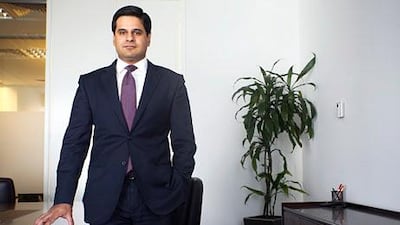What is the asset class and geography you are focused on?
Shuaa itself is very focused on the Mena [Middle East and North Africa] region. That's our strength. We didn't do emerging markets, now we do because the UAE and Qatar are emerging markets, but prior to that our only exposure was Morocco and Egypt. We dabble in those peripheral markets, but our focus is Mena markets, that's what we know best. My background is in equities. We have around US$250 million in assets under management.
What is the outlook for the quarter ahead?
A quarter isn't something I like to talk about - we look to 12 to 18 months' worth of financial numbers. But historically, summers are great times to get into the market. "Sell in May, come back on Labour Day" is an age-old saying in the market. This year has been different because although we've seen volumes scale back we've not seen markets quieten down as much as we would have hoped. In the UAE, the economy on the ground seems to be alive and kicking. The equity markets haven't really stopped and stocks in Dubai are at year highs or historic highs.
What are the main risks (either upside or downside) to the outlook?
In the UAE, overheating of the real estate market. Dubai is a safe haven in the region and globally as well. Dubai tends to be a natural hub for that market to come first.
There's a risk that valuations in Dubai will run up to levels from which we could pull back pretty sharply.
What is the best investment?
We like UAE banking. These are banks that have capitalisation levels well above emerging markets. They are at or near book [value]. Although we've not got loan growth yet, the way things are going in the UAE that will definitely come. There was a debt overhang that's gone away. From the valuation perspective they still have catch-up to play to the rest of the region. Then there is growth that has yet to be priced in. From an upside perspective there's a lot for investors there. We like Emirates NBD and Union National Bank - they're cheaper than the entire sector.
What was the best trade you were ever involved in?
We've done very well with some of the banking names. Yansab, the Saudi Arabia petrochemical company, we picked that up very early and have done very well out of that. Saudi Arabian Fertiliser Co - to put this in perspective, the dividend yield on Safco now is 7 per cent. For us, at our cost, it's 14 per cent - that's how long we've held onto it. We've done very well on some of the retail plays in Saudi Arabia.
What was the worst?
Probably Egypt, with what happened two years ago. That's something we should have been a little more careful of. The way I trade is I don't take double-digit losses. My initial stop loss is 10 per cent. If I start to lose 10 per cent I get out and say I got in at the wrong time. Generally speaking you wouldn't see any losses more than 10 per cent because it would hit that stop loss and I'd be disciplined enough to get out. In Egypt, we couldn't get out. The market was closed, we couldn't get out or sell. And once it opened, it was limit down for three days, so we took a 30-40 per cent drop on all our holdings. We still have one, and it's starting to come up. But in the meantime, that capital could have been allocated to the rest of the portfolio.

